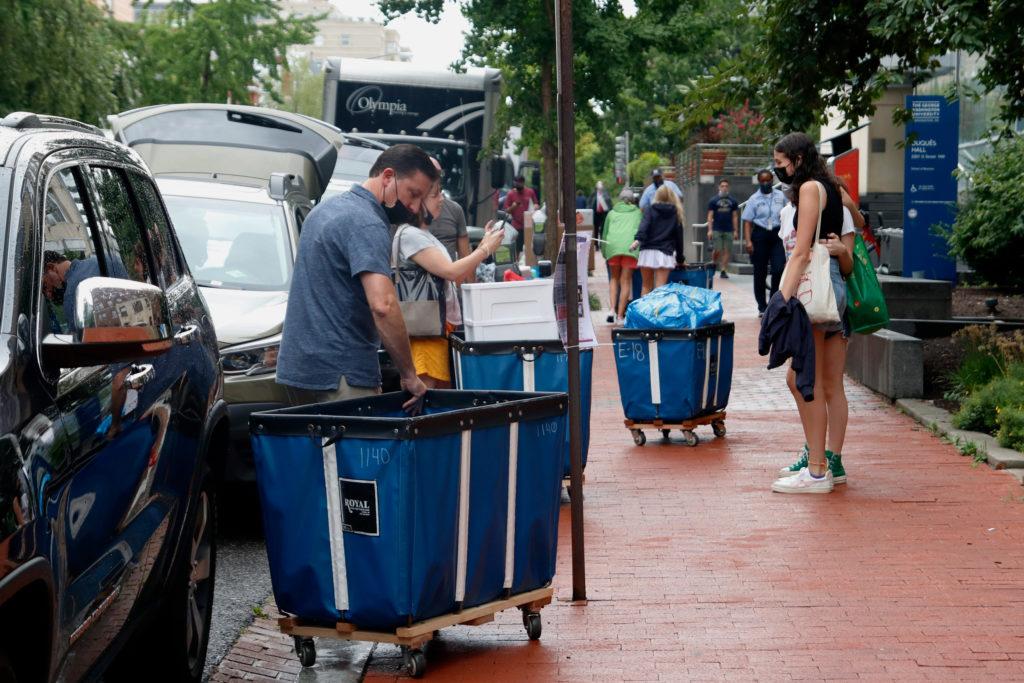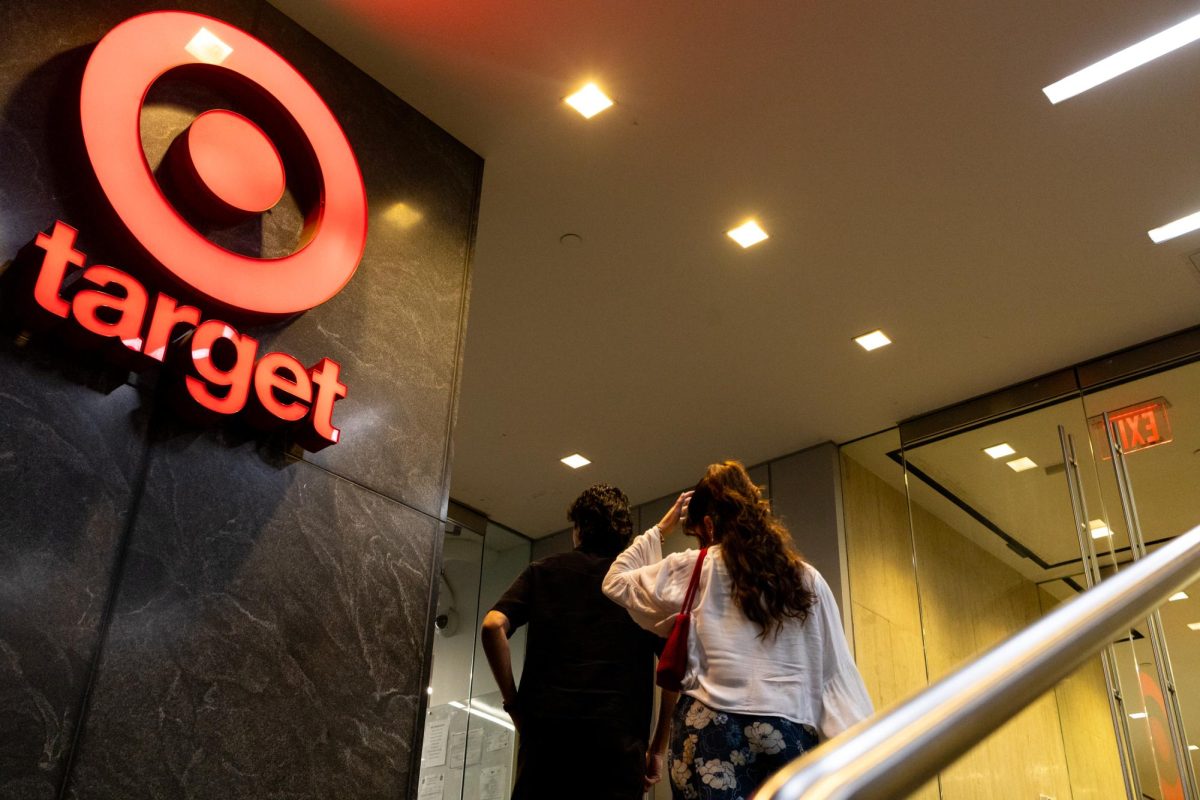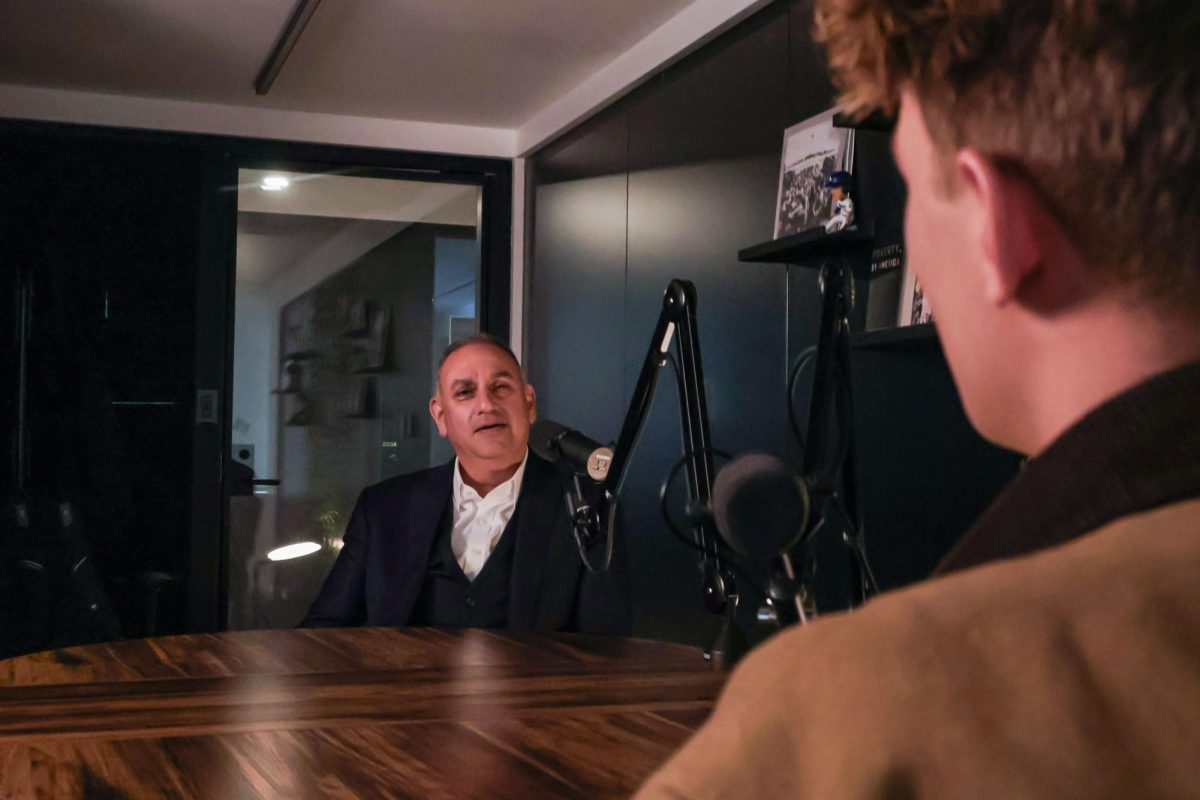With upperclassmen finally resuming their long-awaited traditional college experience, two classes have arrived on campus for the first time, experiencing mixed emotions about navigating campus life as the year gets underway.
More than 10 freshmen and sophomores who will start their first year in person with a full student population on campus said they are looking forward to feeling like a “real” college student after a year-and-a-half of living their academic life through a screen during the COVID-19 pandemic. For the first time in recent memory, the University will hold orientation for two classes of students who have yet to spend a full year on campus in hopes of acclimating them to GW’s in-person environment.
After New Student Orientation programming was held virtually because of the pandemic during the last academic year, the University will offer orientation for freshmen and sophomores this week with academic sessions, campus tours, social activities and opportunities to explore D.C. Students can attend a mix of in-person and online programs and some will be open to both incoming classes, like Monument Walks – a nighttime walk around the National Mall with orientation leaders.
Students said they feel “excited” to learn what life is like as a college student but “nervous” and “overwhelmed” by the unknowns of what their first year may look like. Tess Klugewicz, a sophomore double majoring in political science and American studies, said returning to campus will be an “unprecedented” situation for sophomores who will learn to navigate campus and live away from home halfway through their collegiate career.
“The last time that I was in a classroom was as a fresh senior in high school,” she said. “So, it’s very weird to have to go into a college setting and not really know how to act in a college classroom or how to really be a college student, but I am a sophomore.”
Sophomores spent their first year at GW connecting to their peers through virtual events like Colonials Weekend, while meetings for more than 450 student organizations were forced to turn their operations digital. Campus residents totaled about 500 last fall and 1,500 this past spring, but sophomores said although some may physically know their way around D.C., they still feel they will be learning how to navigate life both on campus and in the classroom.
Klugewicz said this year will be a period of “immense adjustment” for her and her fellow classmates as students continue to learn about campus and rely on upperclassmen, professors and staff to aid them in adjusting to everyday activities like finding classes and using the Vex.
“I think everyone coming out of almost two years of virtual schooling will all be struggling, especially in terms of social dynamics and figuring out how to interact with people again, how to interact with a professor, how to get up early, get to where you need to be, go to an actual location,” she said.
Klugewicz said the decision to hold New Student Orientation for sophomores is “admirable” because they will be welcomed like freshmen and supported as they transition to on-campus student life. She said it will be crucial for students to have a support system within the University community that can ease their nerves and uncertainties about campus.
“Coming back from being virtual for so long, we’ve kind of lost a lot of our social skills, in terms of interacting and meeting new people and making friends, feeling comfortable, putting yourself out there,” she said. “So I think the orientation events are definitely going to help with that.”
Grace Chinowsky, a freshman majoring in journalism and mass communication, said the transition to a reopened campus has been especially “intimidating” for her after moving across the country from her home in Washington.
“I’m definitely not the only freshman that feels like my brain has kind of withered away during the pandemic, just because school was so different, and it was exercising a different part of my brain being online,” she said. “And same goes for living in a dorm as well, we were all just home way more than we ever were during COVID.”
Chinowsky said the entry of two classes experiencing college in person for the first time will give new students a chance to bond and embrace new chances to “reinvent” themselves.
“It gives sophomores another opportunity to have the freshman experience in a way,” she said. “And for freshmen, I think that it can definitely mean that we can make friends with more sophomores hopefully because they would have the shared experience of feeling like a fish out of water.”
Chinowsky said she signed up for on-campus events through the New Student Orientation program like campus tours, trips around D.C. and a visit to the National Portrait Gallery to try and acclimate to campus and build community.
She said although orientation will be helpful, meeting large groups of new people at once can be “stressful,” and forming friendships and bonds with other students will be a more gradual process. Chinowsky said she will look for support from her roommates and her orientation leaders during her first few weeks at GW.
“It’s really the only thing they can do,” she said. “I don’t really see what they could do that would make it any easier for us, but I also think that there’s a certain truth to seeing your real schedule in college and starting to do your classes.”
Will Roberts, a sophomore majoring in journalism and mass communication, said after spending half his freshman year in an off-campus apartment in D.C., he only had limited experiences meeting other students in person and getting a taste of campus life. He said he was able to meet with friends in Kogan Plaza but spent most of his time interacting with other members of his class online.
“I’m really excited to get a real college experience, because obviously last year, it was all online,” he said. “I am nervous though for in-person classes because I have no idea what they’re going to be like.”
Roberts said he’s looking forward to meeting more students at events like New Student Orientation and the School of Media and Public Affairs’ kickoff event, and he will turn to these programs to adjust to campus life. He said the freshman and sophomore classes will be connected as they both adapt to campus, academic and social dynamics for the first time.
“I think it’ll be interesting because freshmen and sophomores both have no idea where we’re going,” he said. “If anything it’ll bring us closer together.”








